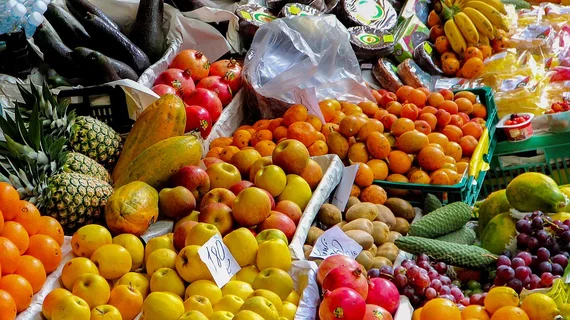Eating vegetables does little to prevent cardiovascular disease
A sufficient intake of vegetables is important for maintaining a balanced diet and avoiding a wide range of diseases. However, a diet rich in vegetables does not appear to lower a person's risk of cardiovascular disease (CVD), according to a new large-scale study published in Frontiers in Nutrition.[1]
Researchers from the Nuffield Department of Population Health at the University of Oxford, the Chinese University of Hong Kong and the University of Bristol collaborated on the analysis, using data from nearly 4000,000 participants from the U.K. Biobank study.
“The U.K. Biobank is a large-scale prospective study on how genetics and environment contribute to the development of the most common and life-threatening diseases," co-author Naomi Allen, BSc, MSc, DPhil, U.K. Biobank's chief scientist, said in a prepared statement. "Here we make use of the U.K. Biobank’s large sample size, long-term follow-up, and detailed information on social and lifestyle factors, to assess reliably the association of vegetable intake with the risk of subsequent CVD."
Patients included in the study all enrolled from 2006 to 2010, answering a series of questions about their diet. Researchers examined how each participant's choices were associated with their risk of hospitalization or death from myocardial infarction, stroke, or major CVD. They controlled for a wide range of possible confounding factors, including socio-economic status, physical activity, and other dietary factors.
The researchers also assessed the potential role of "residual confounding," or whether or not unknown additional factors or inaccurate measurements of known factors might lead to a spurious statistical associations between CVD risk and vegetable consumption.
The mean daily intake of total vegetables, raw vegetables, and cooked vegetables was 5, 2.3, and 2.8 heaped tablespoons per person. The risk of dying from CVD was about 15% lower for those with the highest intake compared to the lowest vegetable intake. However, this apparent effect was substantially weakened when possible socio-economic, nutritional, and health- and medicine-related confounding factors were taken into account. Controlling for these factors reduced the predictive statistical power of vegetable intake on CVD by over 80%, suggesting that more precise measures of these confounders would have completed explained any residual effect of vegetable intake.
“Our large study did not find evidence for a protective effect of vegetable intake on the occurrence of CVD," added lead author Qi Feng, PhD, a researcher at the Nuffield Department of Population Health at the University of Oxford. "Instead, our analyses show that the seemingly protective effect of vegetable intake against CVD risk is very likely to be accounted for by bias from residual confounding factors, related to differences in socioeconomic situation and lifestyle.”
Feng et al. suggest that future studies should further assess whether particular types of vegetables or their method of preparation might affect the risk of CVD.
“This is an important study with implications for understanding the dietary causes of CVD and the burden of CVD normally attributed to low vegetable intake," last author Ben Lacey, MBChB, associate professor in the department at the University of Oxford, said in the same statement. "However, eating a balanced diet and maintaining a healthy weight remains an important part of maintaining good health and reducing risk of major diseases, including some cancers. It is widely recommended that at least five portions of a variety of fruits and vegetables should be eaten every day.”
Related Heart Health Content:
Keto diet linked to potential nutritional, cardiovascular issues — do risks outweigh benefits?
Cardiologist urges patients not to follow keto diet, calling it ‘a mistake’
Cardiologist praises Mediterranean diet, says keto and paleo diets are bad for the heart
Mediterranean, Ornish diets top 2019 rankings for heart health
Ranking the best, worst diets for heart health in 2018
Find more heart health content
Reference:

